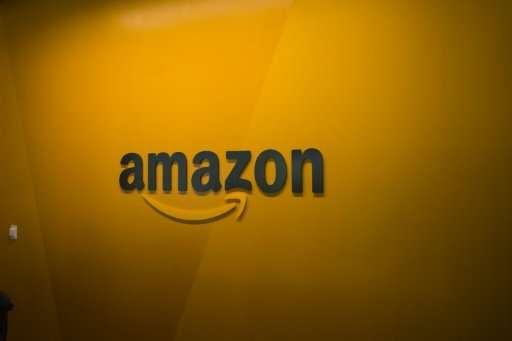The EU is set to decide a landmark case against Luxembourg, which stands accused of giving illegal tax breaks to internet shopping giant Amazon, sources say.
The EU will on Wednesday decide a landmark case against Luxembourg, which stands accused of giving illegal tax breaks to internet shopping giant Amazon, according to two sources familiar with the matter.
If confirmed, a ruling against Amazon would come a year after the EU decided that US tech icon Apple had received similar favourable tax terms and ordered it to repay 13 billion euros ($14.5 billion) in back-taxes to Ireland.
A decision against tech giant Amazon would also land a few months after the EU slapped Google with a record 2.4-billion-euro ($2.8-billion) fine for illegally favouring its shopping service in search results.
A report in the Financial Times said that Amazon would face a tax bill of several hundred million euros, although this could not be confirmed by AFP sources on Tuesday.
The commission, Amazon and the government of Luxembourg refused to comment.
Launched three years ago, the European Commission's probe into Amazon's deals with Luxembourg was part of several investigations into sweetheart tax arrangements between major companies and several EU countries.
Many came in the wake of the "Luxleaks" scandal which revealed details of tax breaks given by Luxembourg to dozens of major firms.
The revelations about the Luxembourg tax deals came as a particular embarrassment for European Commission President Jean-Claude Juncker, who served nearly 19 years as Luxembourg's prime minister, covering the period when the tax deals were made.
In similar cases, Europe's anti-trust chief Margrethe Vestager decided against the tax deals for coffee-shop chain Starbucks by the Netherlands and Italian automaker Fiat by Luxembourg—both companies were ordered to pay roughly 30 million euros.
The European Commission, the EU's powerful executive arm responsible for policing its competition rules, opened the probe in 2014 in the belief that Luxembourg's tax favours to Amazon constituted state aid.
Accordingly, the arrangement may have given the company an unfair advantage over competitors and would therefore be illegal.
But the biggest decision was by far against Apple in Ireland, which shocked Washington. The iPhone maker, as well as Ireland, have appealed the decision.
Once found at fault, a country must recover the amount granted in illegal state aid, potentially a huge amount of money given that some of the tax deals date back many years.
© 2017 AFP






















